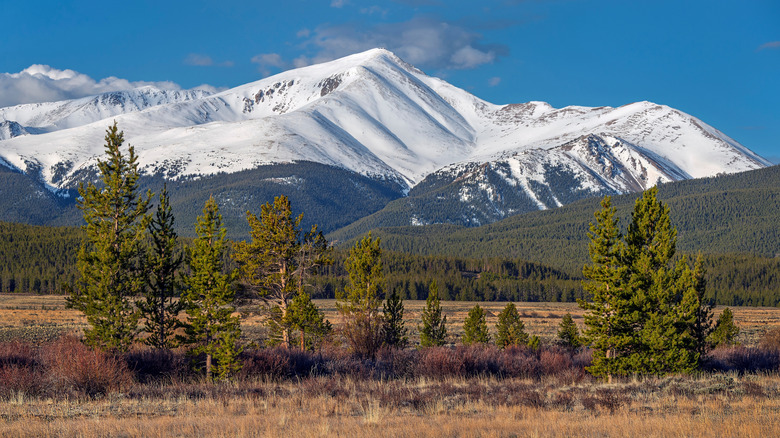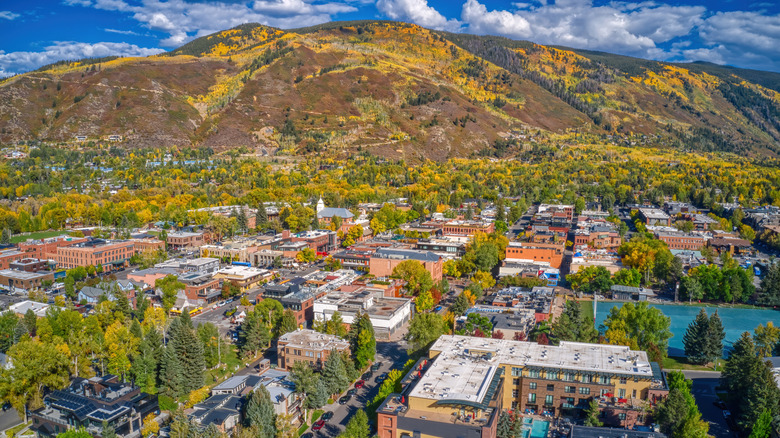The US State With The Highest Average Elevation Will Take Your Breath Away (Literally)
Some states have scenery so beautiful, it takes your breath away. Others sit at such high elevations you can literally lose your breath. Colorado happens to be both. The city life, the four seasons, and the mountainous landscape are so awe-inspiring, they put the Centennial State at a level above the rest ... quite literally. Per Colorado State University, Colorado is the highest elevated state in the U.S. with a mean elevation of 6,800 feet. The higher the altitude, the more you'll feel the difference in the air. In fact, the American Lung Association reports that because there's less oxygen at a higher elevation, you can get altitude sickness, and almost everyone experiences symptoms above 11,000 feet. So, you may not feel it walking around state grounds, but if you were to climb Colorado's highest mountain, Mount Elbert, at 14,000 feet high, you'd need to be cautious.
Symptoms include nausea, headache, dizziness, shortness of breath, and fatigue. As someone from South Florida who lived in a city that sits just above sea level, I found myself a bit lightheaded taking a vacation in Denver. While my body adjusted, for others, the only way to cure severe cases is to go back down to a level where you can breathe easier. If you're someone who is not used to higher altitudes, it's best to prepare yourself for them — and maybe avoid hiking Mount Elbert.
How to help your body adjust to higher altitudes
If you want to take a road trip to explore all four Colorado National Parks, but you're concerned about catching your breath, there are ways you can prepare for higher altitudes without having to worry. First, note that drinking water is most important. As the altitude increases, your body loses water and salt at a more rapid pace, so staying hydrated is key — preferably by choosing a water brand that carries a high electrolyte count. Also, sleeping well is critical. Rest not only helps you at any elevation, but a good night's sleep will do wonders for your body to help acclimate. You can also limit your alcohol intake, consume more calories, and go slow. There's no need to race up a hike. Little by little, you can allow your body to adjust to the change.
Elevation affects everyone differently, but the key is to listen to your body. Colorado has pretty incredible hikes that include a bit of incline, such as the Emerald Lake Trail in Rocky Mountain National Park or the Hanging Lake Trail near Glenwood Springs. While the elevation might be tricky to navigate, in a place like Colorado, you're sure to get postcard-worthy views, even if you need to take an extra breath.
Want to explore more of the country's highs and lows? See our feature on viewing the highest and lowest points in the continental U.S. from a spectacular Death Valley trail.

